
In a world where so much needs to change, Sojourners’ Mitchell Atencio and Josiah R. Daniels interview people who have faith in a new future and are working toward repair.
This series features interviews with artists, activists, authors, scholars, contemplatives, and others who are willing to name the ways our world and churches are broken — and how we can all work to build a better future.
Subscribe to our newsletter: You'll be the first to know when new interviews are published, plus you'll get bonus material that we won’t publish online.
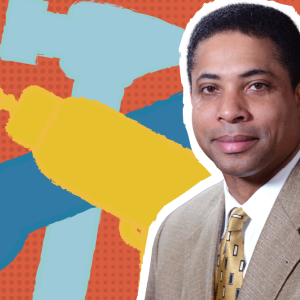
As I write, the federal government remains shut down, and with it, the Smithsonian and its numerous museums.
I suspect, however, that many in the executive branch aren’t losing sleep over a lack of access to publicly funded, rich, beautiful histories ranging from natural sciences to African American history. In the past year, the Trump administration has demanded those museums shape their presentation to his preferences, cut funding to these institutions, and lambasted the Smithsonian’s National Museum of African American History and Culture in particular.
Amid these attacks on a truthful telling of history, I spoke to Harry Singleton III, the faith-based director of the International African American Museum, to understand how a liberation theologian approaches the task of museum work. Singleton is the son of a Baptist minister; a native of South Carolina, where the museum is located; and a scholar who spent most of his time in academia before transitioning to the museum in June.
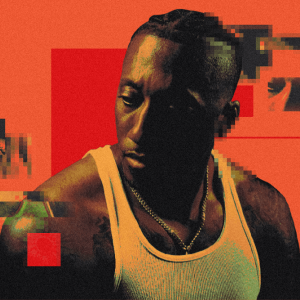
For as long as Lecrae has been a public figure, he has been a lightning rod for white evangelical racism.
A spearhead for the movement that turned Christian hip-hop from a misfit genre to a powerhouse industry, Lecrae has consistently endured racism thinly veiled as theological critique. While he was earning deep respect from hip-hop luminaries—Sway In the Morning and Kendrick Lamar, for example—he was fighting a Christian industry that only begrudgingly came to accept that CHH was here to stay.
Early on, critics claimed “Christian” and “hip-hop” were contradictory terms, and Christian rappers like Lecrae were putting godly messages second to godless culture. Then, as the U.S. began another reckoning with racist police violence, Lecrae was accused of division, partisanship, and putting “political issues” like racism before “biblical issues” like abortion. When he attempted dialogue, white pastors told him to his face that chattel slavery was a “white blessing.”

This interview is part of The Reconstruct, a weekly newsletter from Sojourners. In a world where so much needs to change, Mitchell Atencio and Josiah R. Daniels interview people who have faith in a new future and are working toward repair. Subscribe here.
I’m not on TikTok, so I’d never heard of 22-year-old content creator, Taylor Cassidy. Cassidy rose to prominence after she started creating engaging and easily digestible videos about Black history. During my interview with Cassidy, she told me her goal is to make sure her audience feels uplifted and excited about learning.

The Committee to Protect Journalists has estimated that since Israel’s war with Gaza began in October 2023, Israel has killed 235 journalists and imprisoned another 86. According to CPJ, this has been the deadliest period for journalists since they first began collecting data in 1992.

When Robert Redford was 18 years old, his mother died—suddenly and young—following complications from delivering twin girls who did not live long. This harrowing loss left young Redford disillusioned with God. “I’d had religion pushed on me since I was a kid,” he would tell Michael Feeney Callan, his biographer. “But after Mom died, I felt betrayed by God.”
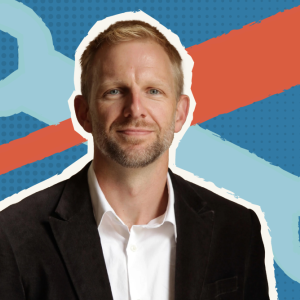
I've grown tired of this question: “How do we get young people to come to church?”
Yes, I know that 49% of Americans born in the 1940s or earlier attend religious services at least once a month. And yes, I know that when it comes to my ilk, people born in the 1990s or 2000s, that percentage cuts in half. Those numbers don’t scare me.
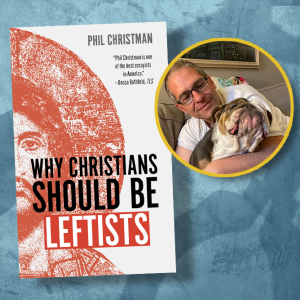
This interview is part of The Reconstruct, a weekly newsletter from Sojourners. In a world where so much needs to change, Mitchell Atencio and Josiah R. Daniels interview people who have faith in a new future and are working toward repair. Subscribe here.
I’m going to let you in on a little secret: If you see a book about politics published in 2025, it’s very possible the world is different than what the author hoped for when they pitched it.

Aymann Ismail has a variety of identities that keep him busy. When I asked him to tell me about himself, he replied, “I’m a journalist, a parent, and a full-time Arab American.” He is also the author of the new memoir, Becoming Baba: Fatherhood, Faith, and Finding Meaning in America.
One of the things I appreciate most about Ismail, who is Muslim, is the way he subtly incorporates reflections on his faith into his writing. In Becoming Baba, Ismail relates how he sat down to read the Quran, only to vehemently disagree with what he read. This led him to explore his doubts and questions, which Becoming Baba explores in an engaging and refreshing way.
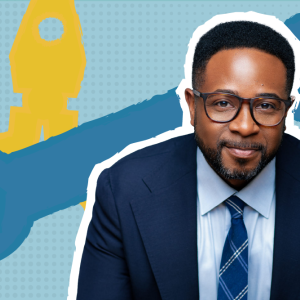
Full disclosure: It’s entirely possible you wouldn’t be reading this interview right now if not for its subject. Let me explain.
In 2013, Jemar Tisby and Phillip Holmes, co-founder of the organization then known as the Reformed African American Network, started a podcast called Pass the Mic.

As an editor and journalist, it’s my job to have words for the news of the day. But now and then, the news of the day has a way of robbing me of all my words. This is especially the case when the news of the day revolves around an injustice that is actively harming our world and humanity. What truly leaves me wordless is when we, as people, know that something catastrophic is happening, but we seek to minimize or ignore it. How do I change that? Is there a perfect combination of words and data to prevent that?
A specific example is Israel’s ongoing genocide in Gaza. I’m not sure what else has to be said at this point to help people realize that a genocide is happening right before our very eyes, and it is likely to expand beyond Gaza into the occupied territory of the West Bank. One of Israel’s leading human rights organizations—B’Tselem—is desperately trying to raise the alarm about this very fact.
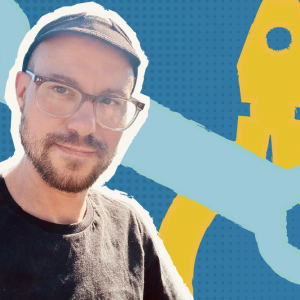
Recently, I saw a clip that claimed to show video game players performing the “first Fortnite baptism.”
Fortnite, for those unfamiliar, is an online battle royale-style game that boasts over a million active players. At its peak, it claimed over 14 million players. In the video, two characters, standing in a virtual lake exchange the questions: “Do you confess that Jesus is your Lord and Savior?” “Will you follow him for the rest of your days?” Followed by a Trinitarian baptism, and exclamations of “Let’s goooooo!”
As I watched this theologically questionable exchange, I started thinking about Riley MacLeod. MacLeod is editor and co-owner of Aftermath, a worker-owned publication dedicated to games journalism and blogging. But I also knew MacLeod was a graduate of Harvard Divinity School and someone broadly interested in faith and social justice.
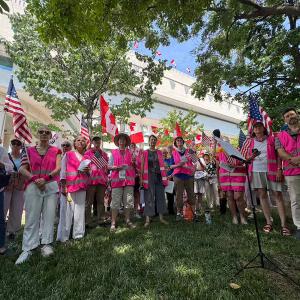
Despite what you may have heard about a “muted” response to President Donald Trump’s second term, the size and scope of protests in 2025 have far surpassed what we saw in 2017.
According to data compiled by Harvard political scientist Erica Chenoweth and researchers at the Crowd Counting Consortium, the vast majority of these protests have been nonviolent; in April and May — which included large nationwide protests like Hands Off!, No Kings, and May Day — 99.5% of the protests featured “no injuries, arrests or property damage.”
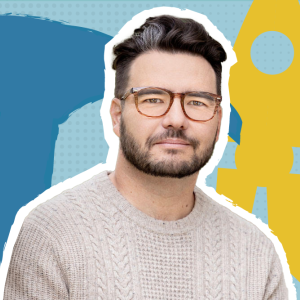
Brad Onishi is the co-host of a podcast titled Straight White American Jesus. With co-host Daniel Miller, Onishi examines and deconstructs evangelical politics, theology, and culture. Onishi, who has a doctorate in religious studies, told me that when they began the podcast in 2018, he wasn’t sure if anyone would listen. But now, almost 900 episodes later, they’ve “commented on every angle and every aspect of Christian nationalism, the Trump presidencies, the Biden presidency, and everything in between: from gender to race, sexuality, church politics, and so on.”
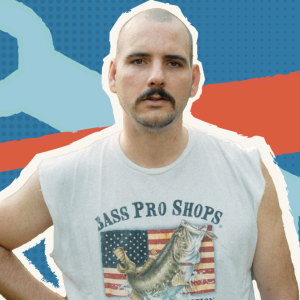
You can add Nathan Evans Fox to the list of artists who are in the country music scene without entirely being of it. Or maybe it’s better to say Fox is operating in a purer, livelier stratosphere of country music that neither needs nor wants the approval of the Nashville ruling class. So far, he’s doing just fine. His “Hillbilly Hymn (Okra and Cigarettes)” made a viral splash; a rich tune in the tradition of old Appalachian spirituals that envisions a cop-free Heaven where “the rich get scared” and “the guns are all for shootin’ clays.”
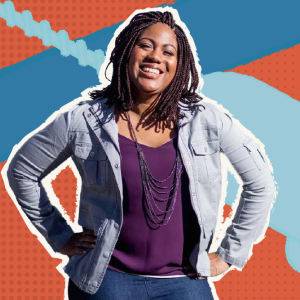
Some may want me to stay quiet, but I want to be loud. I want to scream. I want to cry. I want to embrace the full spectrum of my humanity, the same way that author Austin Channing Brown has learned to embrace herself. In her upcoming book, Full of Myself: Black Womanhood and the Journey to Self-Possession, she details this journey.
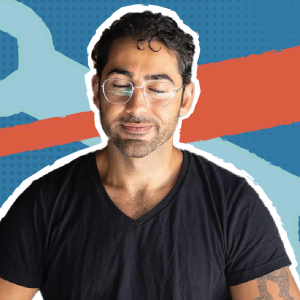
Most would agree with the Nigerian-British singer-songwriter Sade that we don’t need any more war, but we are in desperate need of just a little peace. So, what do we do when it becomes clear that the people advocating for that peace are being thrown in prison or portrayed as “terrorists” who are interfering with the “peace process” in the Middle East due to their advocacy for Palestinian human rights?
Mohsen Mahdawi, who is a legal permanent resident in the U.S., was detained by Immigration and Customs Enforcement agents on April 14 as he exited his citizenship interview at a U.S. Citizenship and Immigration Services office in Vermont. President Donald Trump’s administration accused Mahdawi of potentially undermining the peace process in the Middle East. But despite this accusation, the government has not charged Mahdawi with a crime. Mahdawi was released from detention on April 30 after U.S. District Judge Geoffrey Crawford granted him bail, commenting that Mahdawi had “made substantial claims that his detention was in retaliation for his protected speech.”
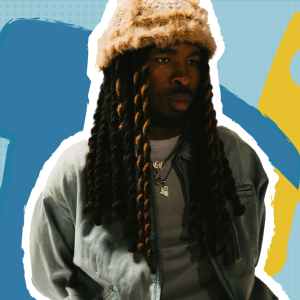
I’ve interviewed celebrities and entertainers before, and my main complaint is always this: They tend to dodge tough topics, which then results in pretty dull conversations.
So when I got on the phone with Christian hip-hop artist Dylan Phillips, whose stage name is nobigdyl., I thought getting him to say anything interesting would be about as hard as fishing for catfish.
But I didn't have to fish long before I realized that nobigdyl. was more than willing to tackle difficult subjects.
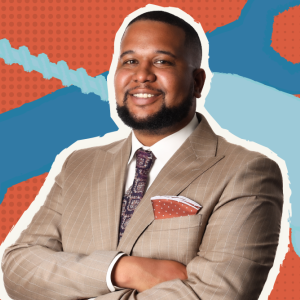
Some of the discourse surrounding the LA protests reminds me of similar things I heard back in 2014, too. On the one hand, you have centrists and liberal pundits who are lecturing protesters about needing to remain nonviolent — which is quite easy to suggest from a work-from-home station largely insulated from the raids that working class Angelinos are enduring. On the other hand, there are the cynics — a group that, despite my best efforts, I sometimes find myself identifying with — and they are asking if protesting makes any difference at all
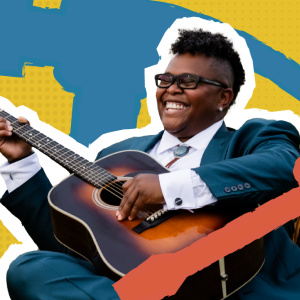
In her personal mission statement, Matthews says she strives “to amplify the voices of the unheard, to shed light on the unseen, and to be a steadfast reminder that hope, and love are the truest pathways to equity and justice." Influenced by Bernice Johnson Reagon, Otis Redding, Aretha Franklin, Sam Cooke, Melissa Etheridge, Ani DiFranco, and, of course, Tracy Chapman, to whom she has often been compared, Matthews brings her whole self into her work.
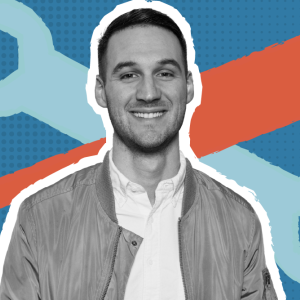
In NPR’s Alternate Realities, Zack Mack, who is a podcast producer and storyteller, hosts a three-part series about his father falling down the conspiracy rabbit hole and the effect it has on his family. After challenging his dad about his conspiratorial thinking, his father responded by suggesting they make a bet: He would make 10 predictions that he believed would come to pass before the end of 2024, and for each one he got right, Mack would pay him $1,000. For each one he got incorrect, he would pay his son $1,000. Mack’s dad, who is a Christian, was certain that his predictions were ironclad.
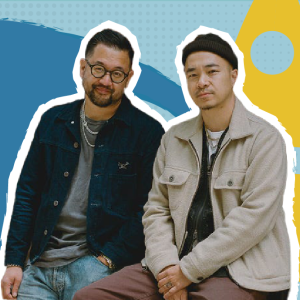
After the COVID-19 pandemic, I started paying more attention to what I was wearing. It had been a year of sweatpants and T-shirts, and I was ready to switch things up to be presentable for the outside world. So, I started doing research on places that put time and effort into well-made pieces of clothing that look good, are built to last, and are ethically produced by people who care about their employees. And for menswear, you don’t have to do much of that kind of research before you start seeing the name 3sixteen everywhere.
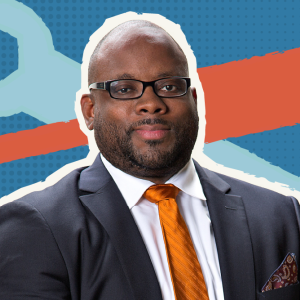
Christian nationalist ideology expanding to nonwhite and non-Christian populations is a particular area of interest for Eric L. McDaniel, who is a professor in the department of government at the University of Texas at Austin. In The Everyday Crusade: Christian Nationalism in American Politics, McDaniel and his co-authors, Irfan Nooruddin and Allyson F. Shortle, explore how religious nationalist ideology is gaining influence with the American public.
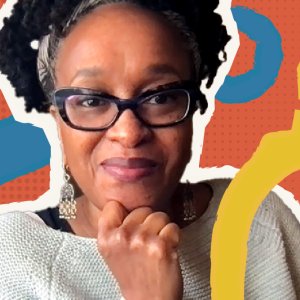
Recently, I got to visit Ebenezer Baptist Church in Atlanta, a historic site where the National Park Service presents a lecture on the church’s history and impact in the city. A key figure in the presentation is Martin Luther King Sr., a Civil Rights leader even before his son became the better known MLK.
I loved the presentation, but something kept gnawing at me as I left. The park ranger who gave the presentation would often pause to interject on the greatness of Rev. King — praise he deserves — but at times he would slip into a sort of deification. King lost his namesake son and his wife to assassinations, and he managed to publicly proclaim love and forgiveness for their killers. The ranger seemed under the impression this came out of a superhuman reserve of grace that he and the rest of us could never achieve. While I understood the point, I wondered if Daddy King (as he was called) would have agreed.

Alissa Wilkinson, a movie critic at The New York Times and a Didion expert, is especially interested in how Hollywood continues to use such cliches when telling stories. Her newest book, We Tell Ourselves Stories: Joan Didion in the American Dream Machine, is an exploration of Didion’s writing in connection to the movie business and how her observations about Hollywood can help us interpret the current political landscape
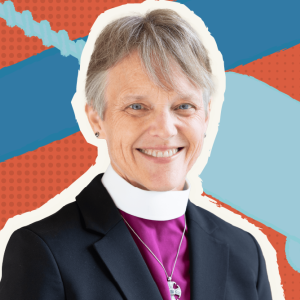
Bishop Mariann Budde got a lot of attention at President Donald Trump's inauguration when she called on him to be merciful to those he had attacked during his campaign. Now, she reflects on her word choice, why she believes “mercy” was the right word, and the tension of leading a church through a political minefield.
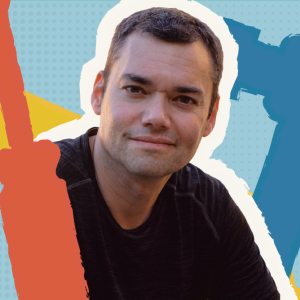
Peter Beinart, author of Being Jewish After the Destruction of Gaza, rejects the idea that the liberation of Palestine is an antimsemitic project. In fact, he argues that Zionism has become an idol for some Jewish leaders, and advocating for Palestinian people
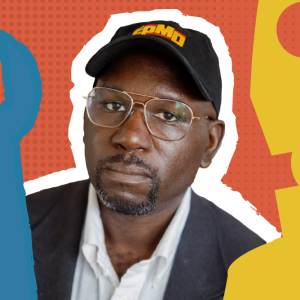
The Constitution isn’t just a symbol, it’s the base document for our democratic republic. And Jamelle Bouie says that in a time of crisis, it's important to remember that in a democracy, we have ownership over its meaning.
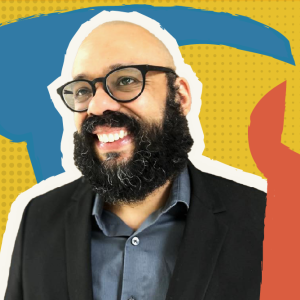
The term “woke” has become something of an anathema in recent years. Those on the Right use “woke” to disparage anything they think of as social justice or political correctness. Those on the Left initially deployed the term to describe a person who was socially conscious, but after it became apparent that banks and corporations were adopting “woke” coded language, and that the semantics of “wokeism” were more performative than substantive, “woke” fell out of vogue.
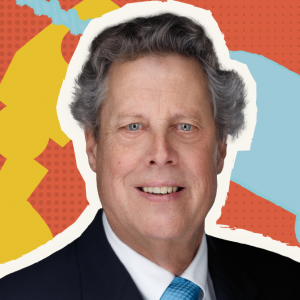
The culture war and a moral panic around "wokeness" has many in Christian higher education living in fear. Now, one former educator is charting a new path.

Yanan Rahim Navarez Melo is a theologian getting his MDiv at Princeton Theological Serminary. He's also an artist pushing the boundaries of a burgeoning genre known as postclassical music. Here's how he sees these two areas of study overlapping.

As a theologian, ethicist, professor, priest, and author, Gary Dorrien has helped shape and excavate the overlap between social justice and faith for nearly 50 years. He has written definitively as a historian and prophetically as an activist, all while teaching generations as a professor of religion. Now, he explains why it was time to tell his own story.

I’d wager that whether you are new to Sojourners or a longtime subscriber, you probably have a deep admiration for the late Salvadoran archbishop and liberation theologian, St. Óscar Romero. And if you don’t, then you’re about to.
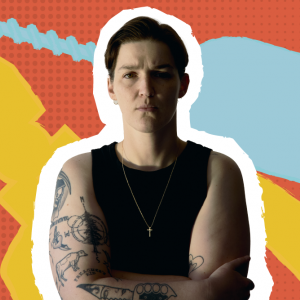
As Semler, Grace Baldridge has spent the past few years proving there was a space for people like her in the Contemporary Christian Music scene, even if she had to dig that space with her bare hands. Now, with the release of her debut album, she's looking back on how she did it — and what’s next.

Whatever multitasking, social media doomscroll, or email hell you’ve got yourself in right now, I want you to slow down, take a deep breath, and give your full attention to this interview.
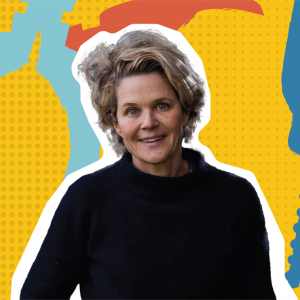
In 2019, poet and reporter Eliza Griswold began reporting on Circle of Hope, a church founded in the spirit of a radical evangelicalism that motivated the likes of Tony Campolo, Ron Sider, and Jim Wallis. Her new book, Circle of Hope: A Reckoning with Love, Power, and Justice in an American Church documents her experience.
The church, founded in 1996 by the couple Rod and Gwen White, had spread to four locations by 2019. Griswold saw the flourishing, growing community as an intriguing example of evangelicalism untied from the Religious Right.
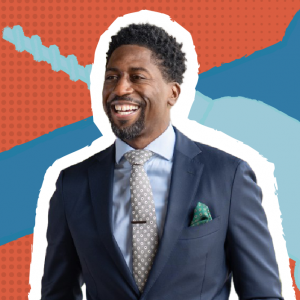
A favorite movie of mine growing up was the 1999 cartoon Our Friend, Martin. It combines two of the subjects I love most: time travel and Martin Luther King Jr. The main character, Miles, a Black sixth grader, visits the childhood home of King and ends up traveling back in time to meet King at various stages of his life. Miles, who was largely unaware of King before time traveling, eventually learns that King was assassinated. In order to prevent this, Miles convinces his new friend Martin to come to the future with him. And while that decision spares King’s life, the movie makes it clear that Miles saving his friend’s life would prevent the racial equality we now enjoy in the U.S.
In the modern U.S., are we really enjoying a post-King racial equality?
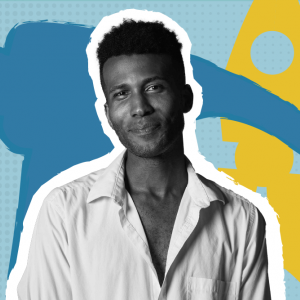
Digging through the basement of the Bishop Payne Library last year, I came across a book titled Black Christian Nationalism.
I laughed, snapped a photo to send it to my friend and co-editor Josiah, and kept on looking for the book I had meant to find. Josiah and I joked about how the book might confound liberal Christians who are overly focused on rooting out “white Christian nationalism” without clearly defining what that phrase actually means, considering whether it's a problem in their own congregations, or listening to good-faith criticisms of their efforts. But I couldn’t stop thinking about the book. Written by Albert B. Cleage, Jr., a pastor from Detroit, it is a provocative proposal that drew from separatist politics and liberation theology in the quest for the freedom of Black people.
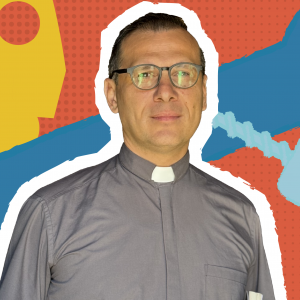
When I visited Rev. Munther Isaac in Bethlehem, the West Bank, in October, he mentioned that he was previously opposed to liberation theologian James H. Cone. Isaac was trained in theologically conservative teachings, growing up in a conservative church and then leaving Palestine to attend a conservative seminary in the U.S.
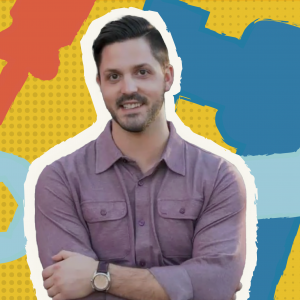
What I’ve most appreciated about Downen is that investment in community. To report on abuse in the SBC, Downen had to earn the trust of everyone from powerful, complementarian pastors to radical, queer exvangelicals. His reporting, as we discussed below, is focused on impacts of power and policy instead of being driven by personalities.
In our interview, we discussed how anti-democracy organizing and Christian sex abuse overlap, what reporters need from their communities, and why he treats religious organizations as institutions with power.
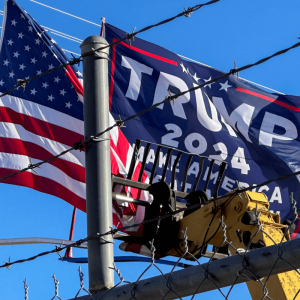
For a long time, I’ve wondered how, on a practical level, something like mass deportations would work. Specifically, I’ve wondered how churches providing shelter to immigrants will respond if and when Immigration and Customs Enforcement agents show up to deport people seeking refuge. What can faith communities, activists, and people of conscience do to tangibly help immigrants right now?

If you’ve encountered Mason Mennenga online, it’s likely due to one of his viral tweets.
Gems like “bible college girls are like ‘marriage is so hard’ yeah, you married a 19-year old evangelical man” and “christians will name their kids after old testament prophets and then are shocked that their kids eventually speak out against injustices.” Occasionally, he dunks on a conservative personality, or he becomes the punching bag for conservative voices frustrated by his progressive theology.
But Mennenga is more than a social media account. He hosts two podcasts, writes about theology and culture, and works as director of admissions at United Theological Seminary of the Twin Cities.
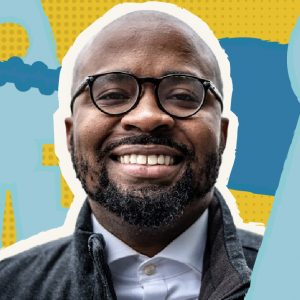
Back when X was called Twitter, and back when I had social media, I met Andrew Wilkes. I had read some of Wilkes’ writings on Black radicalism and capitalism, and immediately decided he was someone worth following. Not only was he writing on topics that occupied a major preoccupation of my own, but he was also a Black Christian. While I think it is largely a myth that leftist politics is primarily a “white space” (whatever that means), I think it’s fair to say that Black Christian leftists are a rarity. So when I discovered Wilkes, I made a commitment to follow his work.
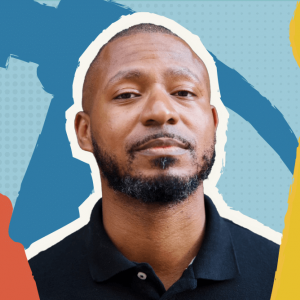
I’ve followed Robert Monson’s work for years. Monson is a writer and theologian who focuses on Black theology, contemplation, and disability. He is also one of the first people outside my direct orbit to encourage my writing (not just my reporting), and I’ve always found him to be encouraging, joyful, and thoughtful.
Lately, as I have been reading Monson’s work, I’ve found that he is becoming rather soft. Now, before you think those are fighting words, I’ve thought this because it’s the term that Monson uses to describe himself and his aspirations as a man. He sees softness as an ethic to live into, a way of honoring his personhood and the personhood of others.
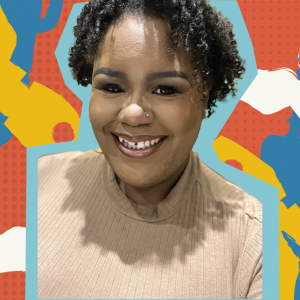
D. Danyelle Thomas, the digital pastor of Unfit Christian and the author of The Day That God Saw Me as Black, also finds theological meaning in fiction. One of the conversation partners for her book is the literature of Toni Morrison. I love Morrison because her characters are often struggling with life’s deepest theological questions while also proudly asserting that they are Black and beautiful. Thomas articulated this idea in her own words, saying, “I don’t navigate this world without my Blackness, so I certainly won’t navigate my relationship with God without it.”

You might think that the people who most fundamentally believe in humanity’s fallen, sinful nature — Calvinists — would also be the most reticent to concentrate power in a small sect of humans.
But often, as Kristin Kobes Du Mez told me in our interview, Calvinists are one of the Christian groups on the front lines of movements where power is concentrated in singular leaders, singular expressions of Christianity, or singular heads-of-households. Kobes Du Mez, a historian at Calvin University , finds this baffling, but can’t deny that the movements are linked. As she sees it, Christian patriarchy, Christian nationalism, and anti-democracy movements are connected by their approach to power.
In a new documentary short, For Our Daughters, Kobes Du Mez and director Carl Byker address the connection of these movements through the stories of sexual abuse victim-advocates: Rachael Denhollander, Cait West, Christa Brown, and others tell the stories of how sexual abuse was allowed, ignored, or covered-up in their communities while analyzing what Christianity has to say about it.
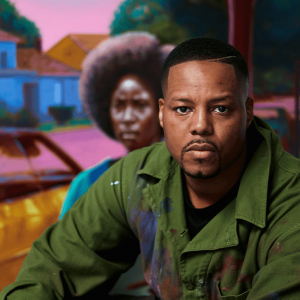
In the first few moments of Exhibiting Forgiveness, La’Ron (John Earl Jelks) is beaten after he defends a store clerk in a convenience store robbery. The violence, like most of the violence in the film, is just out of view. Soon the scene shifts and Tarrell (André Holland) wakes from a nightmare. His wife Aisha (Andra Day) reassures Tarrell that he is safe in the beautiful world they are building for themselves as artists and parents.
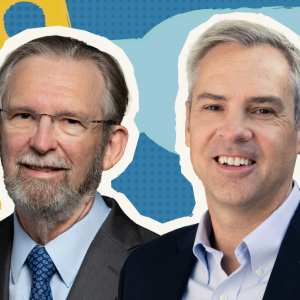
“Some people out there in the readership are all in a tizzy that ‘Richard Hays has changed his mind! He’s changed sides! He’s not on our team anymore!’ They think this is some kind of a radical reversal. In spite of what he wrote in the first book, [The Widening of God’s Mercy] is consistent with the man that I had grown up with and known my entire life.”
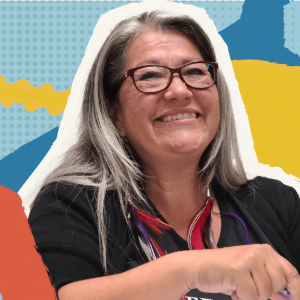
I contain multiple identities. On the one hand, I am a Black man whose ancestors were enslaved, then pushed into ghettos, and now exploited through the unjust prison labor system. On the other hand, I am living on the stolen land of the Duwamish people. I can’t escape the colonial history of the U.S. and its reverberating effects.
There are times when I try to convince myself that, because I am a Black person living in the U.S., it’s not my responsibility to wrestle with the legacy of colonialism and how I might be a beneficiary of that history. However, after my conversation with author and activist Patty Krawec, I am convinced that I need to view myself through a more complicated lens.
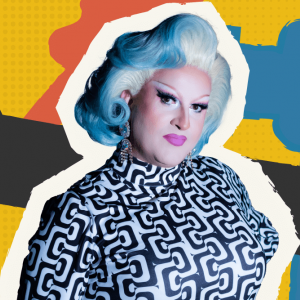
Flamy Grant called in to her morning interview after participating in a day-long silent retreat. Well, not a silent retreat exactly — it was a vocal rest.
After spending the last year touring the U.S. off the success of her album, Grant, who prefers to use her stage name in interviews, needed to rest her voice. Since her rise to Christian music stardom — or infamy, depending on how one feels about a drag queen topping the Christian charts — she has performed in bars, clubs, and churches spreading the good news in glitter.
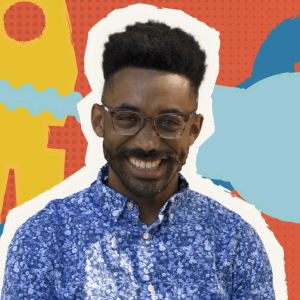
In Against Me!’s song “I Was a Teenage Anarchist,” Laura Jane Grace sings, “I was a teenage anarchist / But the politics were too convenient.” The song is a catchy tune that has stuck with me, even if I’ve outgrown the punk-rock-emo scene. But unlike Grace, I have not outgrown my anarchistic impulses.
Popularly, anarchy is associated with “chaos,” but I think of it more in terms of avant-garde jazz, where everyone is working together in their own unique way to create a sort of consensus.
So, when I recently heard of a new book focused entirely on the nexus between anarchism and Christianity, I had to investigate.